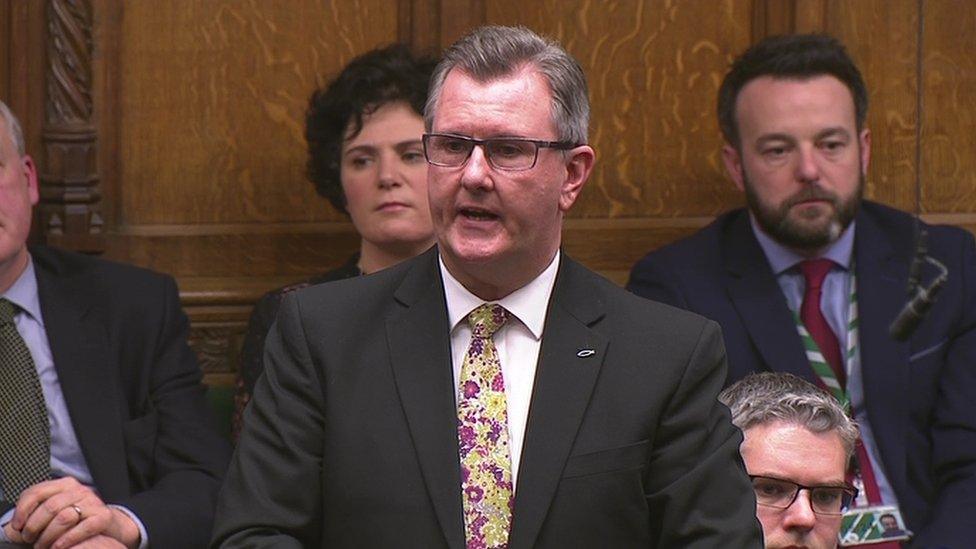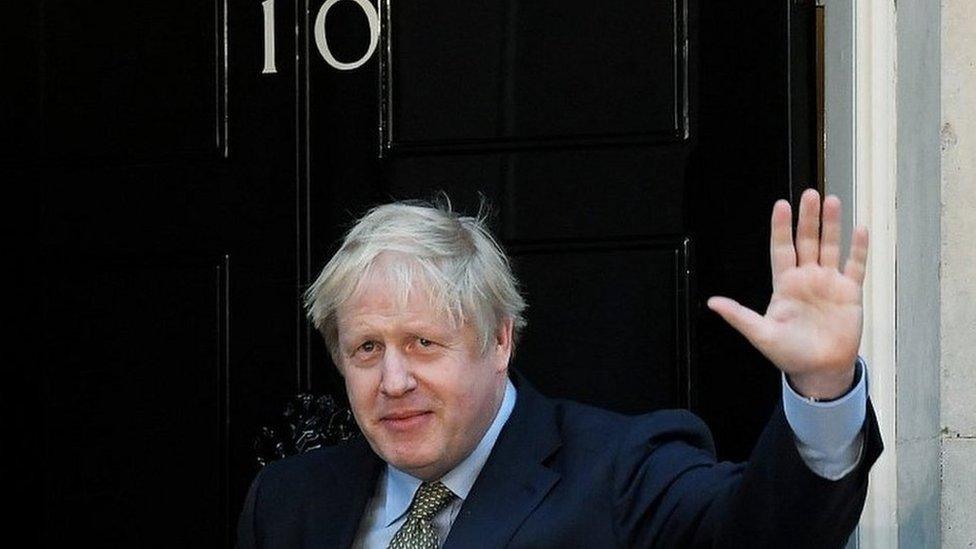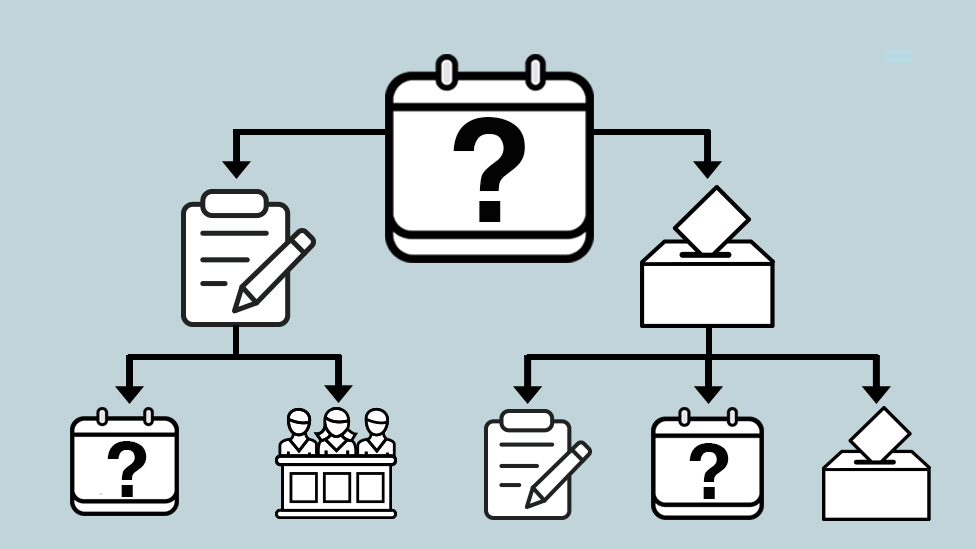Brexit: NI parties table amendments to bill
- Published

Sir Jeffrey Donaldson is the new leader of the DUP in the House of Commons
Some of the Northern Ireland parties have tabled amendments to the government's Brexit bill in a last-ditch attempt to seek changes.
Last month, Parliament voted overwhelmingly to back Boris Johnson's Brexit deal, but Northern Ireland MPs voted against it.
The DUP opposes the consent role for the NI Assembly in the agreement.
The Brexit bill is due to return to the Commons next week, with the UK set to leave the EU on 31 January.
The list of amendments tabled by opposition MPs so far was published on Thursday, but it will be up to the speaker's office to determine which ones are selected for debate.
The speaker is likely to select amendments with cross-party support.
However, even if selected, chances of defeating the government are slim given the large Conservative majority.
'Seek to replace'
The Democratic Unionist Party (DUP) has put forward 14 amendments, while new Alliance MP for North Down Stephen Farry has submitted five proposals.

Alliance's newly-elected MP Stephen Farry has tabled five proposals
It is also understood the SDLP has tabled some amendments ahead of next week's votes.
Since the general election, the DUP's votes are no longer required to give the government a parliamentary majority.
Some of the DUP's amendments focus on the part of the Brexit deal it opposes, namely the role the Stormont assembly would play in deciding whether or not Northern Ireland would continue following EU customs rules after Brexit.
The withdrawal agreement states it would be done by a simple majority vote, something the DUP argues against, insisting votes on contentious matters require cross-community support of both unionist and nationalist assembly members.
A DUP amendment says the government should "seek to replace" any parts of the deal concerning the consent mechanism which conflict with the "existing practice of votes in the NI Assembly" requiring cross-community support.
The party's other amendments also include asking the government to reaffirm Northern Ireland's place in the UK will not be affected as a result of the Brexit deal.
Assessment
Alliance's proposals are focused on the membership of the governance bodies for the withdrawal agreement, arguing they must always retain representation from Northern Ireland.
Alliance is planning to table seven more amendments as well.
Labour has tabled an amendment calling for the government to extend the transition period to 2023, if a trade deal is not reached by June.
As well as vowing to leave the EU on 31 January, the government has ruled out any lengthening of the transition phase - when the UK would still be bound by Brussels rules - beyond the end of this year.
Labour is also proposing a comprehensive economic impact assessment of the effect of the NI-specific arrangements in the Brexit deal on the Northern Ireland economy and movement of goods between Great Britain and Northern Ireland, which should be carried out by no later than 30 June.
- Published30 December 2020

- Published31 December 2019

- Published13 July 2020
